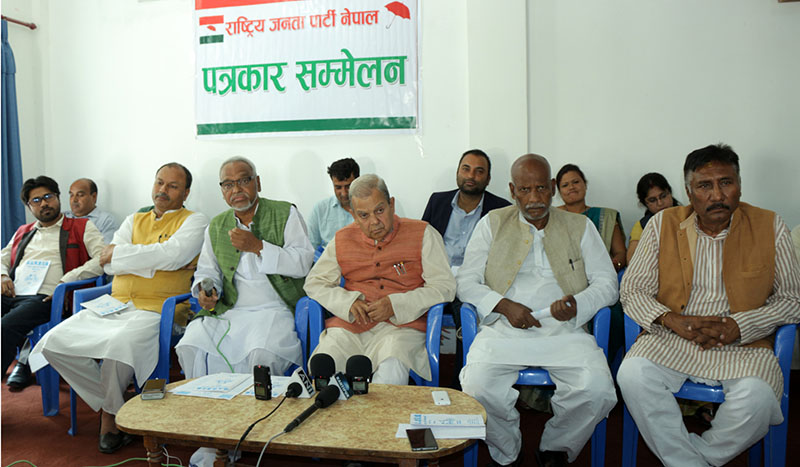Charter amendment top agenda of Madhes-based parties
Kathmandu, November 3
Making constitution amendment major political agenda in their joint election manifesto, Rastriya Janata Party-Nepal and Federal Socialist Forum-Nepal have requested voters to help them garner two-third majority in the Parliament so that they could amend the statute to make it ‘acceptable to all’.
The two Madhes-based parties have forged an electoral alliance in Province 2 for the provincial and parliamentary elections slated for December 7, and have decided to contest the elections with a common manifesto.
The draft manifesto has come down hard on other parties. It states that the three major political parties — the Nepali Congress, the CPN-UML and the CPN-Maoist Centre — are not any different from each other when it comes to Madhes-related issues.
Stating that the UML is against empowering the oppressed, the draft document adds that it lost the right to seek votes in he Tarai-Madhes after it opposed constitution amendment.
The draft manifesto has a similar view on the CPN-MC. It states that the CPN-MC endorsed the UML’s views after they forged left alliance with the party.
The two parties have termed the NC a party with ‘conservative thinking’. Although the NC seems somewhat flexible compared to the UML and the CPN-MC, its actual approach is similar to that of the left alliance, adds the document. The two parties said failure to forge a democratic alliance was due to the NC’s arrogance.
The draft manifesto, however, is mum on the form of government the parties want. This is because the FSF-N advocates a directly-elected executive head, while the RJP-N is in favour of the existing parliamentary system, according to a source directly involved in drafting manifesto.
The manifesto has not included any issues, such as the form of government, on which the two parties have different opinions, a source said. “It has been agreed that the leaders of the two parties can present their official views in their individual speeches, but the manifesto will not have any issues on which they do not have a common view. The manifesto only has common minimum agendas.”
Recognising agriculture, tourism and water sources as major bases of economic growth in the draft manifesto, the two parties have pledged to pursue development programmes accordingly. The draft manifesto states that the parties will implement programmes, such as agriculture research and market promotion.
The parties have committed to ensuring education for all and promoting investment to create jobs. The draft manifesto also places special focus on development of road infrastructure and has proposed taking internet to the ward-level.
Another major agenda in the manifesto is Chure conservation. Acknowledging that the rapid degradation of the Chure area has created problems, such as flooding of homes, agricultural land and desertification, the parties have vowed to place special focus on Chure conservation.






